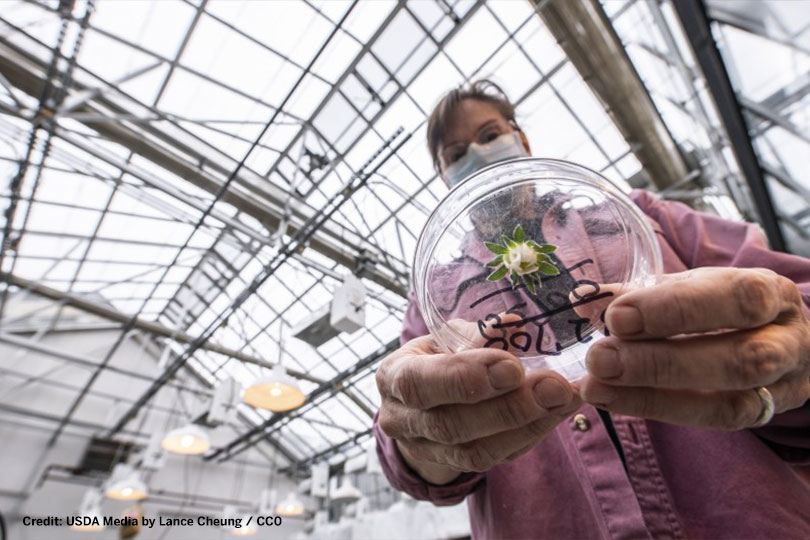The American Farm Bureau Foundation for Agriculture has launched a first-of-its-kind online platform for K-12 and STEM educators who seek to bring science to life through the lens of agriculture.
The Food and Agriculture Center for Science Education supports educators who teach, coach or advise K-12 science coursework in public and private, formal and informal educational spaces through a three-pronged approach consisting of classroom resources, professional development and partnerships.
“We’re pleased the Food and Agriculture Center for Science Education will enable us to continue supporting educators in meaningful ways with relevant resources and vital professional development,” said Daniel Meloy, executive director of the Foundation for Agriculture. “There’s such an incredible connection between science and agriculture and food production, and students everywhere can become inspired by making that connection.”
The structure of the center provides science educators with a unique, immersive mix of valuable resources and professional development to seamlessly and fully integrate agriculture into classrooms at all levels of student development. The resources and professional development opportunities focus on core science disciplines while contextualizing the multitude of science principles found in agriculture.
Examples of forthcoming content in the three areas include:
- Classroom Resources: Full units of instruction, curriculum, individual lessons and worksheets, references and more. This area focuses on creating and curating engaging, relevant, reliable and accurate resources that will equip science teachers to easily incorporate agriculture into the content they already teach to meet the Next Generation Science Standards. All materials will be open-source.
- Professional Development: Immersive, experiential, supportive and accessible opportunities focused on developing, empowering and equipping educators not only from a teaching perspective, but especially through knowledge of the agricultural industry and methods of instructing that lend themselves to teaching science through the lens of agriculture.
- Partnerships: A pathway for strategically aligning partners such as industry experts, trade organizations, land grant university researchers and educators to best support both the immediate and long-term needs of science educators.
Materials already available include a full unit on genetics and heredity, a bundle of student materials and a teaching guide on how cattle interact with the ecosystem and more.
The center’s first professional development event, scheduled for April 28 at 4 p.m. Central, is a virtual tour of “science through the lens of agriculture.” Educators will leave with free open-source materials ready for immediate classroom implementation. Registration is available now at www.onthefarmstem.com/events/webinar-042822.
Learn more about the center and access the full library of resources available to K-12 and STEM educators at www.FoodAgSciEd.org.

